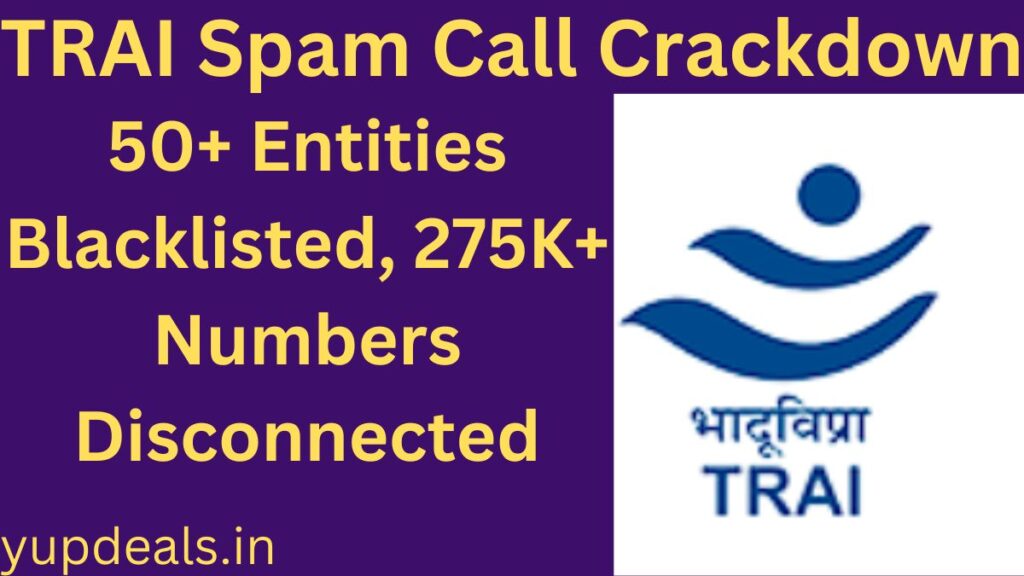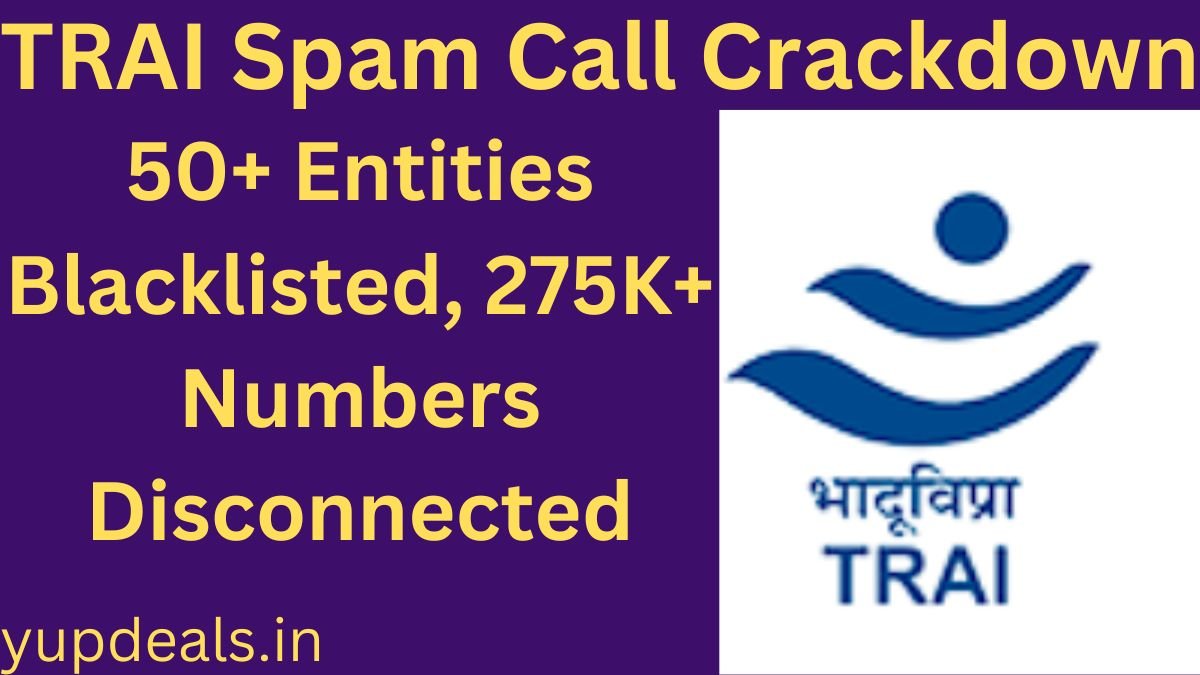Explore TRAI’s comprehensive actions against spam calls, including blacklisting, disconnections, and new regulations. Learn how these measures aim to create a cleaner telecom environment in India.
In an era where digital communication reigns supreme, the scourge of spam calls has become an increasingly pressing issue for millions of Indian consumers.
The Telecom Regulatory Authority of India (TRAI) has recently taken significant steps to combat this growing problem, implementing a series of stringent measures aimed at curbing unsolicited commercial communications.
This article delves into the details of TRAI’s recent actions, their potential impact, and what it means for both consumers and businesses in India’s telecom landscape.
The Rising Tide of Spam Calls in India
Alarming Statistics
The first half of 2024 saw an unprecedented surge in spam calls across India, with TRAI reporting over 790,000 complaints against Unregistered Telemarketers (UTMs).
This staggering figure underscores the magnitude of the problem and the urgent need for regulatory intervention.
Impact on Consumers
Spam calls are more than just a nuisance; they can lead to:
- Disruption of daily life and work
- Increased risk of fraud and scams
- Privacy concerns and data security risks
- Erosion of trust in legitimate telecom services
TRAI Multi-Pronged Approach to Tackling Spam
Immediate Enforcement Actions
In a decisive move, TRAI announced on September 4, 2024, that Access Providers have taken significant enforcement actions over the past two weeks:
- Blacklisting: Over 50 entities have been blacklisted for violating telecom regulations.
- Disconnections: More than 275,000 telecom resources, including SIP, DID, and mobile numbers, have been disconnected.
These actions were carried out under the Telecom Commercial Communication Customer Preference Regulations, 2018 (TCCCPR-2018), demonstrating TRAI’s commitment to enforcing existing regulatory frameworks.
August 13 Directives: Tightening the Noose
On August 13, 2024, TRAI issued a set of strict directives aimed at curbing promotional voice calls from unregistered sources:
- Prohibition of Unregistered Calls: Access Providers were mandated to stop promotional voice calls originating from unregistered senders using various telecom resources.
- Penalties for Misuse: Violations can result in severe consequences, including:
- Disconnection of services for up to two years
- Blacklisting of offending entities
Proposed Amendments to Anti-Spam Regulations
Recognizing the need for evolving regulatory frameworks, TRAI issued a consultation paper on August 28, 2024, proposing several key amendments:
- Mandatory Tariffs: Introduction of compulsory charges for calls and texts from ten-digit mobile numbers exceeding a daily limit.
- Enhanced Financial Penalties: Stronger monetary disincentives for violators.
- Updated Regulations: Revised guidelines for senders and telemarketers to adapt to changing technological landscapes.
Collaborative Efforts to Combat Spam and Fraud
Joint Committee Meeting: A United Front

On August 27, 2024, TRAI led a crucial joint committee meeting, bringing together key stakeholders:
- Reserve Bank of India (RBI)
- Insurance Regulatory and Development Authority (IRDA)
- Ministry of Consumer Affairs
- Department of Telecommunications (DoT)
This collaborative approach highlights the recognition that spam and fraudulent communications are cross-sectoral issues requiring coordinated efforts.
New Prohibitions for Telecom Providers
The joint committee meeting resulted in new prohibitions for telecom providers, including:
- Ban on sending messages containing:
- URLs
- APKs (Android application packages)
- OTT (Over-The-Top) links
- Unapproved callback numbers
These measures aim to reduce the vectors through which spam and potentially fraudulent content can be disseminated.
The Road Ahead: Implications and Expectations
Anticipated Impact on Spam Reduction
TRAI is optimistic that these comprehensive actions will lead to a significant reduction in spam calls, providing much-needed relief to consumers.
The multi-faceted approach, combining immediate enforcement with long-term regulatory changes, is designed to create a more robust defense against unsolicited communications.
Challenges in Implementation
While the regulatory changes are promising, several challenges lie ahead:
- Technological Adaptation: Spammers may seek new methods to circumvent regulations.
- Balancing Legitimate Business Needs: Ensuring that legitimate telemarketing activities are not unduly hampered.
- Consumer Awareness: Educating the public about their rights and how to report violations effectively.
The Role of Stakeholders
TRAI has called upon all stakeholders to comply with the new directives, emphasizing the collective responsibility in creating a cleaner telecom environment.
This includes:
- Telecom Service Providers: Implementing robust systems to detect and prevent spam.
- Businesses: Adhering to ethical marketing practices and obtaining proper consent.
- Consumers: Remaining vigilant and reporting suspicious communications.
Conclusion
TRAI’s recent crackdown on spam calls represents a significant step forward in the battle against unsolicited communications in India.
By combining immediate enforcement actions with forward-looking regulatory amendments and cross-sector collaboration, TRAI aims to create a more secure and trustworthy telecom ecosystem.
As these measures take effect, it will be crucial for all stakeholders to remain engaged and adaptive.
The success of these initiatives will ultimately depend on the continued vigilance of regulators, the compliance of businesses, and the active participation of consumers in reporting violations.
For Indian citizens, these developments promise a future with fewer disruptions from unwanted calls and messages, enhancing both the quality of their daily lives and their overall trust in digital communications.


Downloaded the 3355betapp the other day. UI’s clean, and it’s running smooth so far. Seems legit. Worth a look if you’re into that kinda thing. Get it here: 3355betapp
Just downloaded the 80winapp app. Pretty smooth, easy to use on mobile. The mobile experience is great and I have fun playing it at bus stops for killing time. Worth checking out if you like playing on the go.
Honestly, fun88fun120 surprised me. Pretty clean interface, and withdrawals were smooth. I’d recommend giving it a shot if you’re looking for a reliable platform. More deets here: fun88fun120
Been using w88trangchu for a while now, and overall, I’m pretty happy with it. Nice selection of games, decent payouts. Check w88trangchu, pretty sure you won’t regret it.
Heard about MGbet com through a friend. Signed up and had a blast. The selection of games is pretty impressive, definitely worth a look. mgbet com